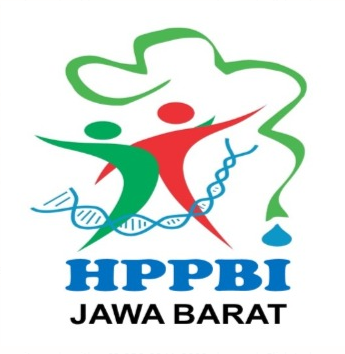Analysis of Participation in Maintaining Environmental Cleanliness through Ecological Intelligence
Abstract
This research is a sequential explanatory mixed method research which consists of a quantitative research and a qualitative research. This study consists of two variables, the independent variable (X) namely Ecological Intelligence and the dependent variable (Y) namely Participation in maintaining Environmental Cleanliness. This study aims to obtain information about relationship between ecological intelligence and participation in maintaining environmental cleanliness and to find out other factors related to participation in maintaining environmental cleanliness of high school students in Cibinong. This research was conducted at SMA Negeri 2 Cibinong and SMA Negeri 3 Cibinong in the 2020/2021 academic year. The research began in November 2020 until June 2021. The subjects of this study are students of class XI MIPA at SMA Negeri 2 Cibinong and SMA Negeri 3 Cibinong. The research population was taken using a multistage random sampling technique. The research sample was determined by proportional random sampling technique using the slovin formula. Based on the calculation of the slovin formula, the number of samples was 166 students. The instrument used in this study is a non-test instrument, namely a questionnaire. The results of the study found that there was a positive relationship between ecological intelligence and participation in maintaining environmental cleanliness in SMA Negeri students in Cibinong District. The positive relationship is shown by the regression equation à = 32.524 + 0.673x with an r value of 0.697 and a coefficient of determination (r2) of 0.485, which means that 48.5% of ecological intelligence contributes to participation in maintaining environmental cleanliness, while the remaining 51.5% is a contribution from other factors beyond ecological intelligence. As for other factors related to participation in maintaining environmental cleanliness, namely: self-awareness, environment (family, friends, school), regulations, and information media.
Keywords: Ecological intelligence, participation in maintaining enviromental cleanliness, student.
References
Akkuzu, N. (2016). Towards a Profound Ecological Undestanding: Statistical Attempt to Measure our
Ecological Intelligence. International J. Soc. Sci. & Education, 6(2), 198216.
Bahrudin, M. D. ., & Setiawan, I. (2017). The Schools Policy in Developing Student Ecological
Intelligence. Journal Earth and Environmental Science. https://doi.org/doi:10.1088/1755-
/145/1/012048
Çelik, E. Y., & Yüce, Z. (2019). Investigation of the Awareness and Habits of Secondary School Students
about Cleanliness and Hygiene from Various Variables. International Education Studies, 12(4), 173.
https://doi.org/10.5539/ies.v12n4p173
Gifford, R., & Nilsson, A. (2014). Personal and Social Factors That Influence Pro-Environmental Concern
and Behaviour: A Review. International Journal of Psychology, 49(3), 141157.
https://doi.org/https://doi.org/10.1002/ijop.12034
Goleman, D. (2010). Ecological Intelligence: how knowing the hidden impact of what we buy can change
everything (1st ed.). Broadway books. www.greenpenguin.co.uk
Hendriyanto, A., Mustofa, A., & Sutopo, B. (2018). Building Ecological Intelligence Through Indonesian
Language Learning Based on Kethek Ogleng Dance. International Journal of Education, 11(1), 50.
https://doi.org/10.17509/ije.v11i1.10902
Jambeck, J., Wilcox, C., T, S., Perryman, M., R, N., & K, L. (2015). Saving the Ocean from Plastic Waste.
The McKinsey Quarterly. ckinsey.com/business-functions/sustainability/our-insights/saving-theocean-from-plastic-waste
Malikha. (2013). Kesadaran Diri Proses Pembentukan Karakter Islam. Jurnal Al -Ulum (Jurnal Studi-Studi
Islam) IAIN Gorontalo, 13(1), 129150.
Preston, J. L., & Ritter, R. S. (2012). Cleanliness and godliness: Mutual association between two kinds of
personal purity. Journal of Experimental Social Psychology, 48(6), 13651368.
https://doi.org/10.1016/j.jesp.2012.05.015
Prihanti, G. S., Lista, D. A., Arsinta, I. I., Hanggara, S. P., Galih, R. P., & Sinta, F. (2018). Faktor-faktor
yang Mempengaruhi Tingkat Perilaku Hidup Bersih dan Sehat pada Rumah Tangga di Wilayah Kerja
Puskesmas Poned X. Jurnal Ilmu Kesehatan Dan Kedokteran Keluarga, 14(1).
https://doi.org/https://doi.org/10.22219/sm.Vol14.SMUMM1.6644
Rangel-Buitrago, N., Mendoza, A. V., Gracia C, A., Mantilla-Barbosa, E., Arana, V. A., Trilleras, J., &
Arroyo-Olarte, H. (2019). Litter impacts on cleanliness and environmental status of Atlantico
department beaches, Colombian Caribbean coast. Ocean and Coastal Management, 179(May),
https://doi.org/10.1016/j.ocecoaman.2019.104835
Rangkuti, A. F. (2017). Hubungan Kebijakan Sekolah dengan Upaya Mewujudkan Sekolah yang Berbasis
Kebersihan Lingkungan. URECOL Proceding, 16071610. http://lpp.uad.ac.id/wpcontent/uploads/2017/05/Ahmad-Faizal-1602-1610.pdf
Rinaldi, A., Novalia, & Syazali, M. (2020). Statistika Inferensial untuk Ilmu Sosial dan Pendidikan (D. M.
Nastiti (ed.); 1st ed.). PT Penerbit IPB Press.
Septiyuni, D. A., Budimansyah, D., & Wilodati. (2015). Pengaruh Kelompok Teman Sebaya (PEER
GROUP) terhadap Perilaku Bullying Siswa di Sekolah. Jurnal Sosietas (Jurnal Pendidikan
Sosiologi), 5(1). https://doi.org/https://doi.org/10.17509/sosietas.v5i1.1512
Siswanto, H. (2010). Pengarusutamaan Kesehatan Lingkungan dalam Meningkatkan Kualitas Hidup
Manusia. Media Litbang Kesehatan, XIX(2).
Sugiyono. (2017). Metode Penelitian Kuantitatif, Kualitatif, dan R&D (26th ed.). ALFABETA, CV.
Suhardjo, S. (2016). Hubungan antara Pengetahuan Pelestarian Lingkungan dan Intensi Siswa terhadap
Output Sekolah dengan Partisipasi Siswa dalam Kebersihan Lingkungan. Jurnal Ilmiah Pendidikan
Lingkungan Dan Pembangunan, 17(02), 89115. https://doi.org/10.21009/plpb.172.03
Surya pratama, W., Istiana, R., & Hidayat, N. (2017). Analisis Partisipasi Siswa dalam Menjaga Kesehatan
Lingkungan ditinjau Melalui Kecerdasan Naturalis. Jurnal Pendidikan Biologi, 7(1), 4451.
http://jurnal.unimed.ac.id/2012/index.php/JPB
Susanto, L. H., Retnowati, R., Ekamilasari, & Bon, A. T. (2020). Disaster Preparedness Behaviour Based
on the Mitigation And Disaster Preparedness Attitude of Student of Madrasah Aliyah (MA) In the
City of Bogor. Industrial Enginerring and Operations Management Society International
DOI: 10.55215/jber.v2i2.3646
 Abstract views : 1669
Abstract views : 1669
Refbacks
- There are currently no refbacks.
Copyright (c) 2022 Nur Intan Permatasari

This work is licensed under a Creative Commons Attribution-NonCommercial 4.0 International License.









